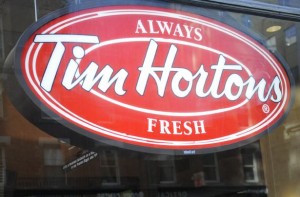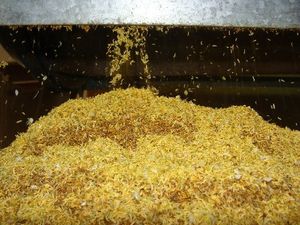Burberry, a British luxury fashion house, has turned to technology in pursuit of luring its customers back and reversing its declining sales. The company warned investors that annual profits would be “at the low end of expectations,”[i] and subsequently, its share price plummeted by 18%. Burberry’s CEO, Andrea Ahrendts, has decided to create garments “fitted with interactive screens and RFID (radio frequency identification) tags.”[i] This will permit customers to view the production process by simply flashing their clothes in front of interactive screens.
Ms. Ahrendts’s decision to grow her company through incorporating high-tech gadgets in its product line is a brilliant tactic to get attention from potential customers and promote the brand. Due to global economic slowdown, luxury goods have become less appealing to the general demographic. However, the company, with 450 stores in over 50 countries[ii], is wisely adapting to the constantly changing environment. Burberry’s new strategy will add value to its brand and entice the technology-savvy generation to acquire its products.
[i] “Burberry Goes Digital.” The Economist. The Economist Newspaper, 22 Sept. 2012. Web. 29 Sept. 2012. <http://www.economist.com/node/21563353>.
[ii] “Burberry Overview.” LinkedIn. n.p., n.d. Web. 29 Sept. 2012. <http://www.linkedin.com/company/burberry>
Photo Credits:
Burberry: London Fashion Week. 2012. Photograph. London. IFB: Independent Fashion Bloggers. IFashion. Web. 29 Sept. 2012. <http://heartifb.com/2012/09/17/burberry-takes-digital-marketing-to-the-next-level/>.
Read more about Tech-Savvy Burberry:
http://www.ifashion.co.za/index.php?option=com_content&task=view&id=4816&Itemid=115


